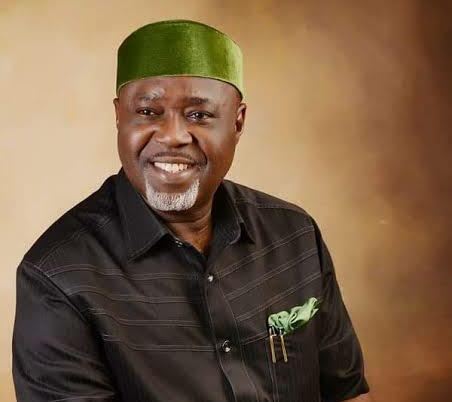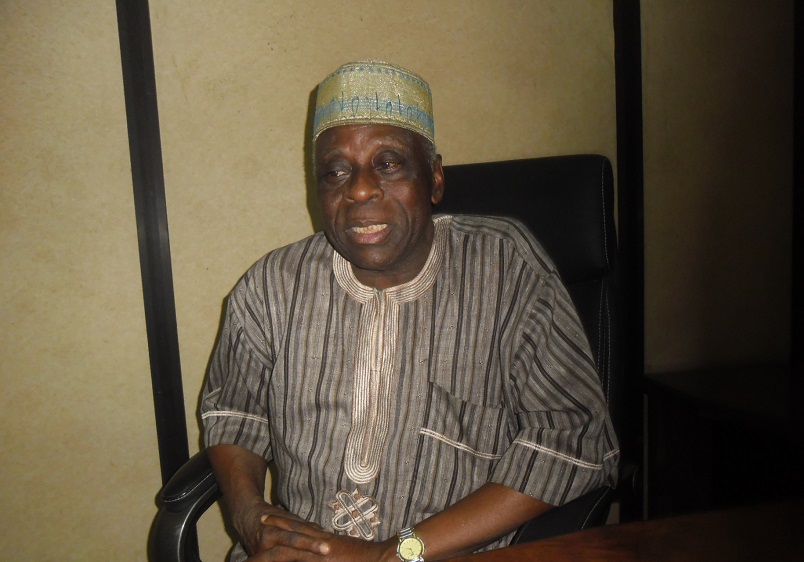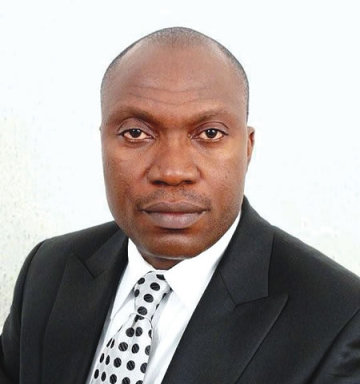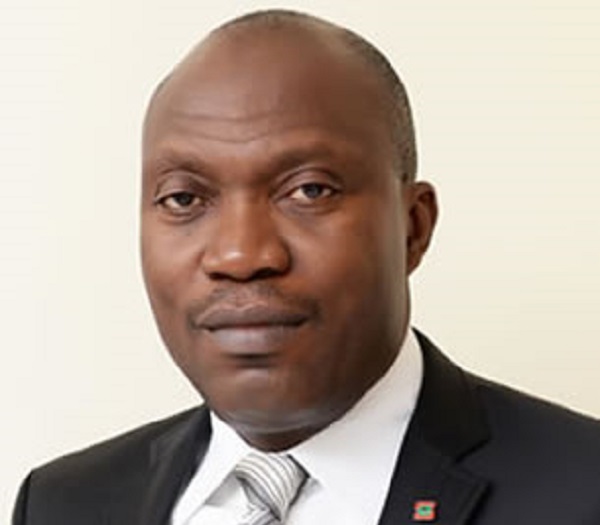Our Strategy To Safeguard Nigerian Inland Waterways – NIWA MD

By Kenneth Jukpor
Dr. George Moghalu is the Managing Director of the National Inland Waterways Authority (NIWA). Following the increase in boat mishaps, he engaged NIWA stakeholders at the Authority’s Lagos Area Office. Moghalu also addressed other salient issues affecting inland waterways navigation. Excerpts:
Boat Mishaps
There have been too many boat mishaps across the nation. In the last one month there have been more than five fatal boat mishaps across the nation. There have been accidents in Benue, Plateau, Lagos and other places. Every NIWA certified vessel would have a number and it is taking effect this week.
After discussing with the NIWA management team, I decided that the next thing to do is to engage the stakeholders who carry out activities on the waterways. We have to collectively tackle this challenge before us. Every life that has been lost is an important one to the nation. They are Nigerians that we have a collective responsibility to protect.
Anything we can do to ensure that we don’t lose lives, we should be willing and keen to do it. That is why I called for a meeting with the critical stakeholders in Lagos such as boat operators, boat owners, jetty owners, dredgers, barge owners, fishers, among others. We have to find out why these activities have continued and explore strategies to curb them.
I found out that most of these accidents have been a consequent of some operators’ refusal to obey protocols. It is either life jackets aren’t worn, vessels aren’t certified or the boat operators aren’t qualified. In other cases the vessels were over-speeding or the wrong specification of boats was used.
These challenges are linked to our operational methodology and our characters, leading to several deaths.
NIWA protocols include compulsory wearing of life jackets and the proper ones. NIWA also prohibits intake of alcohol by captains and members of the crew. No vessel is allowed to move from 6pm and vessels shouldn’t be overloaded. We have come to realize that in some cases there are midstream transfers of passengers but that isn’t acceptable.
When the weather isn’t good for navigation, we should allow our vessels to operate in such conditions. We shouldn’t gamble with the lives of people. Why does a boat captain or a member of the crew refuel a boat’s tank midstream? Didn’t the boat operator realize that they needed to check the fuel gauge before the vessel took off? These practices aren’t and the NIWA protocols have been there. Today, we want boat operators and owners to know that NIWA would begin to drastically enforce these protocols. There would be a new drive to re-certify vessels, boat drivers and crew. No vessel or boat captain would be allowed on the waterways if not certified by NIWA. We are going to impound vessels that aren’t seaworthy and certified by NIWA.
NIWA would also intensify random checks and don’t be surprised to find NIWA police on the waterways chasing and impounding vessels. We are going to start that in earnest because this lawlessness cannot continue.
The use of life jackets must be obeyed and speed limits must be observed.
However, I know that NIWA needs the support of boat operators and boat owners, jetty operators, among other crucial stakeholders.
No NIWA jetty would allow any vessel to leave the jetty after 6:30pm. That’s not possible because the Area Manager could lose his or her job. However, we don’t have control of all the jetties in Lagos, let alone the jetties across the country. So, we need your cooperation.
When the last boat incident occurred the first question I asked was the time the accident took place and I was told it happened at about 8pm. I asked where the vessel took off from and I was told it wasn’t a NIWA jetty. The unfortunate thing is that the vessel took off from a jetty and the jetty owner possibly allowed it. Most of the boats in Nigeria aren’t designed for night navigation. They don’t have night navigational aids. So, we need your buy-in to achieve sanity and that is why I am here.
Going forward, I can assure you that if there is any infringement on any of NIWA protocols, vessels will be impounded and jetties will be closed. This is because we can’t condole any more loss of lives from boat accidents.
Wrecks
To address obstacles like wrecks on the waterways, we are going to involve stakeholders on best solutions to the problems. In 2019, we had budgetary provision to remove some wrecks and we did that. This year, we intend to do the same because the problem of wreck isn’t a fixed item. Wrecks are consequences of accidents that could take place after the previous ones have been removed. I want to assure you that I would address this challenge of wrecks. It is also important to note that a good number of the wrecks we talk about on the inland waterways are logs.
Some groups have indicated interest in removing the wrecks and utilize them for other purposes. They intend to pay NIWA for the wrecks and we are discussing with them to finalize the arrangement.
Stakeholders Engagement
As an institution, we are creating a robust programme through the Area Managers to ensure that there is constant engagement between NIWA and its stakeholders.
Training
We are also setting machinery in motion for training and retraining of boat captains. We have set up one training centre in Warri and we are concluding plans to establish another in Lagos and other coastal areas so that we can train boat captains and operators. This would ensure the operators are retrained and re-certified, thereby limiting the challenges of boat mishaps. People will be trained based on the kind of vessels they operate.
The issue of night dredging has also been identified as a factor leading to accidents but NIWA has already directed that night dredging should be stopped. This should be done during the day because it gives room to assess the ecological effect of the dredging activities.
Sand Diggers/ Fishers
This problem isn’t particular to Lagos. I sent a team to Warri and Sapele to make findings on this business and the effects. I don’t want to take away the source of livelihood for these people but we also have to ensure their activities aren’t in any way a threat to safety.
We have to think out of the box with regards to the best approach to handling this issue of sand diggers.
Similarly, the aspect of fishing lines and fishers associations also affects navigation on the inland waterways. We have to streamline the operational guidelines for these operators.
NIWA Police
One of the fall-outs of the recent meeting of heads of maritime agencies is collaboration. This includes the harmonization of NPA Police, NIWA Police and Marine Police. We want to create synergy so that they can meet and streamline their operations. They should be able to work together to enable the sector to achieve more in terms of safety and security.
NIWA, LASWA Rift
It is in the interest of operators on the waterways either boat operators or jetty operators, that the conflict be resolved. This is what NIWA intends to achieve and we have visited the Lagos State governor. We have also had other engagements with the Lagos team to work in harmony.
With regards to the conflict as a result of revenue, we shouldn’t forget that Lagos gets from the funds collected by NIWA. This is because NIWA has no distribution power for its finances. NIWA’s revenue goes into the federation account. The money is shared according to the Nigerian laws and dictates and Lagos is one of the beneficiaries because it gets allocation from the federal government.
If there are any cases of double taxation as alleged by some operators, please approach NIWA with specific instances. I know that even recently NIWA adjusted its levies as part of efforts to reduce the impact of COVID-19 pandemic on operators.
If you can give us examples, we can explain the actual charges and show what should be paid so that you are not paying double ignorantly or out of mischief by any official.
Waterways and port operations
If 1000 containers are leaving Apapa today it means 1000 trucks would be required to convey them. However, if the waterways are viable, barges can move hundreds of these containers to the various locations. Some self propelled barges can take over 200 containers and they can be deployed to ease the traffic gridlock on the port corridors.
The less activity on the roads would also mean that they will be more durable. People will be able to drive into Apapa with their cars because 1000 trucks will be off the roads. The pressure on the seaports would also be reduced.







